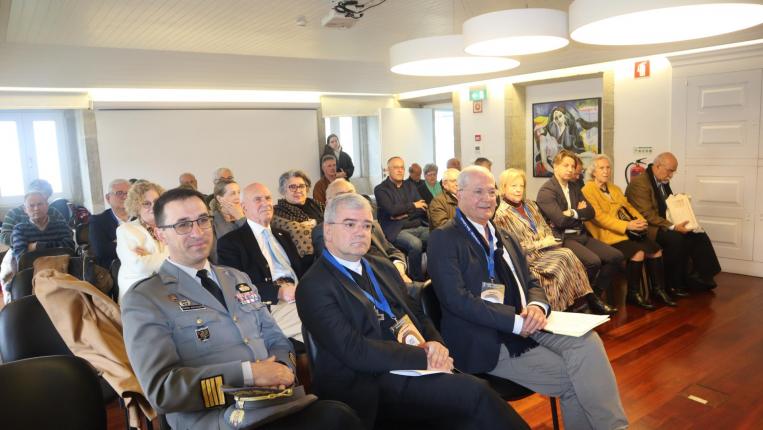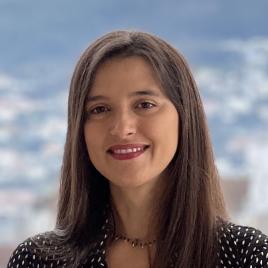The degree in Social Work at the FFCS offers students proximity teaching (personalized support) with a strong link between theoretical and practical teaching. Innovative pedagogical practices and teaching methodologies appropriate to the syllabus (e.g. Service-Learning and Project-Based Learning) stand out.
Students have the opportunity to take part in a wide range of academic and social solidarity activities in addition to conventional teaching activities. The main aim of the course is to train professionals of excellence and also to contribute to the Integral Development of the Person.
It is also worth highlighting the wide range of contact experiences with the contexts of practice. Direct contact with the field takes place throughout the course, becoming more significant from the 2nd year onwards, when students begin their curricular internship.
The curricular internship can be carried out in public or private organizations/entities where social workers work. We guarantee a wide range of available organizations with extensive regional coverage, particularly in the districts of Braga, Porto, Viana do Castelo and Vila Real. The preparation of the definition of the internship site is carried out in a personalized way, with
each student, preferably at the end of the 2nd semester of the 1st year. It involves assessing a number of criteria, such as: the student's interest in the areas of intervention, geographical area of residence or preference, organizations available to host trainees, among others.
Why Social Work?
It is a course with a broad scope, since in addition to the structural core of the Social Work area, it has a wide range of contributions from the most varied areas of the social and human sciences, among others.
What are the objectives?
- To provide scientific training, enabling an understanding of the major contemporary social changes and their impact on the lives of populations (individuals, families, groups and communities);
- To know, develop and deepen the theoretical-methodological, technical-operative and ethical dimensions of Social Work;
- Contribute to the development and implementation of renewed and humanistic social policies;
- Develop attitudes that contribute to the solution of human and social problems and encourage the promotion and empowerment of people while respecting their choices and defending human rights and social justice.
Competencies of graduates in Social Work:
In line with the Global Standards for Social Work Education and Training it is intended that graduates will acquire the following professional competencies:
- Development of social and community mediation, social advocacy and empowerment practices;
- Understanding social determinants that impact people's health and well-being (mental, physical, emotional and spiritual);
- Building and promoting healthy social relationships at the micro, meso and macro levels (individuals, families, groups, programs, organizations, communities);
- Promoting creative strategies and exploring social alternatives that foster the participation of socially vulnerable groups in social inclusion programs;
- Aptitude for multidisciplinary, intersectoral and networking work;
- Design, implementation and evaluation of social intervention projects;
- Critical analysis, formulation, implementation and evaluation of social policies and programs;
- Social monitoring of individuals and families, work with groups and community intervention;
- Directing and managing social services and institutions;
- Application of values, principles and obligations of ethical conduct;
- Ability to investigate and explain social problems.
Career Prospects
The fields of work of Social Workers are multiple and include diversified levels of intervention:
- Direct provision of services to populations, in the social monitoring of individuals and families, groups and community intervention;
- Direction and management of social services and institutions;
- Consulting, evaluation, design and coordination of programs and projects in the areas of social intervention and policies;
- Social Research.
Social Service professionals work in different organizational contexts, such as Public Administration Organizations and State services (in most ministries, especially in employment and social security, health, justice and education), Municipalities (city councils and parish councils, particularly in municipal services, in areas such as education and housing); Private Companies; in non-profit Social Organizations, associations, foundations, cooperatives and trade unions, social solidarity institutions, and mercies, namely in the areas of:
- Social Security;
- Social Action;
- Early intervention;
- Health;
- Rehabilitation;
- Justice and Social Reintegration;
- Education;
- Housing and environment;
- Vocational training and employment;
- Regional, local and community development.
Customize your degree
Optional Subjects
In order to allow students to reinforce their area of specialization, the degree program includes a diversified set of optional courses. As of the 2023/2024 academic year, a set of new optional course units in the Social Work scientific area will come into operation, namely: i) Digital Social Work; ii) Innovation, Creativity and Social Responsibility and iii) Management of social equipment and responses.
Teaching regime
The degree is taught on a daytime, face-to-face basis and lasts 3.5 years (7 semesters), corresponding to 210 credit units (ECTS).
Admission regime
Students who meet the general requirements for admission to the University may apply to the Bachelor's Degree in Social Work: hold a secondary school degree or a legally equivalent qualification; take the entrance exams:
(18) Portuguese AND (02) Biology and Geology
OR
(18) Portuguese AND (06) Philosophy
OR
(18) Portuguese AND (11) History
OR
(18) Portuguese AND (17) Mathematics Applied to the Social Sciences.
Under the provisions of Decree-Law no. 64/2006, of March 21, those over 23 years of age, who have completed their studies by December 31 prior to the course they are applying for, and who do not hold qualifications for access to higher education, can also apply (see regulations). Degree holders who have completed higher education courses at national or foreign higher education establishments may also apply (see regulations).
Other information:
- Student worker status.
- Possibility of international mobility through the Erasmus+ Program and International Volunteering Programs (e.g. Fly Program).
Registration and Accreditation
DGES
Registration No. R/A-Ef 1191/2011/AL02 on January 26, 2022
A3ES
Accreditation date: December 6, 2022




